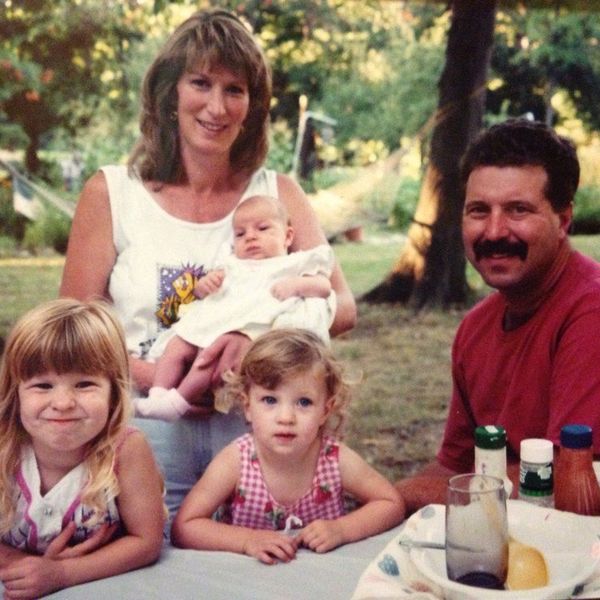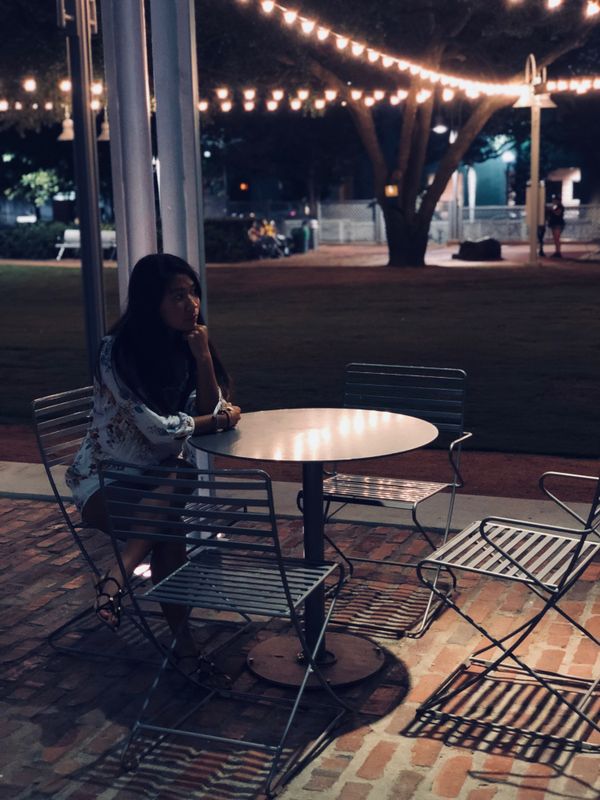Grief is universal. It touches everyone and is most often associated with death. While it is a sorrow we all have or will experience, our society has attempted to create “rules” on acceptable grieving. In the United States, there is seemingly a specific period of time allotted for people to mourn, grieve, plan or attend funerals, and then are expected to be back to work, school or life like normal. We have been conditioned with certain expectations on “getting over” emotional experiences that are actually traumatic. The truth is, grief is complex and there is no actual time limit on how it affects us. A loss from decades ago can result in pain even now and there is absolutely nothing wrong with that. A loved one, someone you respect or admire, a pet or anyone that meant something to you being suddenly removed physically from existence is agonizing. That kind of suffering leaves a mark.
Until recently, I used to believe that I was grieving the wrong way, or that I simply did not know how to properly cope with death. When I mentioned this to my psychologist, she asked me to explain what I meant. I told her that I have experienced deaths of friends and family members in recent years, most of them unexpected, a couple of them suicides. Losing them was, and is, heartbreaking and feels unbearable. When I think on memories of my time with those I have lost I experience an odd mix of happiness and misery. Other times I feel empty and numb. Whenever someone else brings up the name of a person who has died I struggle to even talk about them, no matter how many years it’s been. This ongoing sense of emotional agony and being unable to communicate it caused me to believe that I was not dealing with it the way I was supposed to. I see others discussing the death and memories of those lost with an openness and ease I am apparently incapable of. After discussing this with my psychologist, she surprised me by explaining that what I described was not me being unable to cope with death – it is simply how grief affects me, and grief is an ongoing process. I don’t have to approach the pain and those memories the same as someone else, and I don’t have to settle on the notion that there is something wrong with me because I am dealing with loss differently than another person. My grief is not debilitating; I am able to work, attend college and maintain my relationships with my friends and loved ones. The hurt from missing loved ones is part of my journey now, as are the beautiful, happy memories I have of each one of them.
Another way to understand the complexities of grief is to research how other cultures mourn. In South African townships, for example, “widows are expected to mourn for six months to a year and children who lost a parent are expected to mourn for three months.” While a time “restriction” is involved with this custom, it is fascinating the amount of time given strictly for mourning. In my experience, my previous employer expected me to be back to proper working form after about a week. There was an attempt at empathy, but in business, time is money, and money is often king. Grief and mourning are not properly recognized as the significant experiences they are. Our society’s views on how a person is supposed to manage that pain is flawed and not nearly as prioritized as it should be.
Besides time, another controversial aspect of confronting death in our society is arguing who we are and are not allowed to grieve over. Let me be clear: loss is loss, pain is pain, and grief is often uncontrollable. It is a natural part of our existence. An obvious example of this is the massive amount of influential celebrities that died in 2016. Bowie, Prince, Michael, Fisher, Rickman, Ali – these are only a handful of incredible names that left a hole in our hearts with news of their losses this past year. The issue many of us have been running into are individuals who continuously call out fans of these celebrities for grieving their deaths when they didn’t know them personally. The impact these people had on our lives is not made any less significant simply because we didn’t know them intimately, however. Their words, talent, artistry, philanthropy and influences are all vibrant, amazing memories that will always matter to us. Many of them created important change in our history and in society. Their impact on each of us and on the world continues, even though they are gone. We cannot erase what those people meant to us; it is a piece of us and our history that is suddenly missing a hole when someone dies. The word “celebrity” has tried to unfairly place those people in their own category but they are human beings like anyone else. The biggest difference is simply that they are people whose careers happen to put them in a public spotlight where they are able to share their ideals, talents, and their lives with us. Through their work they inspire, motivate, guide, entertain, and teach us about life. You don’t have to know someone personally to experience grief at losing them; death is death, and pain is inevitable. The shock of a significant person in your life being removed suddenly and unexpectedly is not supposed to be easy. Never apologize for who, or how you mourn.
As we allow ourselves to grieve and mourn in our own way, with or without the approval of others, we wonder how we can move on from that pain. In the words of Jody Houser, “grief is the price we pay for our ability to love. So what can we do in the face of grief but promise to love louder and longer and more?” Grief and suffering from loss (of any kind) exists not only because our ability to love, but because these people made an impact; they left behind a mark that cannot be washed away simply because they are no longer physically alive. They live through their work, the good they’ve done, or the influence they have had. Whether it’s someone who impacted millions, or a close friend or family member that made a significant, specific impact on you personally, those memories matter. Never hesitate to tell those you care about and the people you admire, that you love and appreciate them.
I must also acknowledge that claiming that there is no right or wrong way to grieve is not the same as ignoring unhealthy ways of coping. I certainly am not advocating for unhealthy responses to grief (i.e. drug or alcohol abuse, self-harm, etc), but if this is how you cope, my best advice would be to seek out help. In fact, anyone struggling with grief, unhealthy coping techniques or not, should be encouraged to talk with someone who can better guide them towards healing. In many, if not most cases, the pain of grief is everlasting. An image, smell, or object can randomly trigger a memory that can flood our senses with the same fresh pain we felt when the loss first occurred. Often times those emotions can be far too difficult to navigate alone. Reach out to a friend, or close family member, at the very least, if you are struggling or feeling alone. If possible, seek out a professional, or contact a National Support Group to provide you with guidance and advice.
Remember, there are millions of people out there that understand, or can empathize with your pain. Grief is not something you have to face on your own, and is never an experience you have to justify to anyone.






















